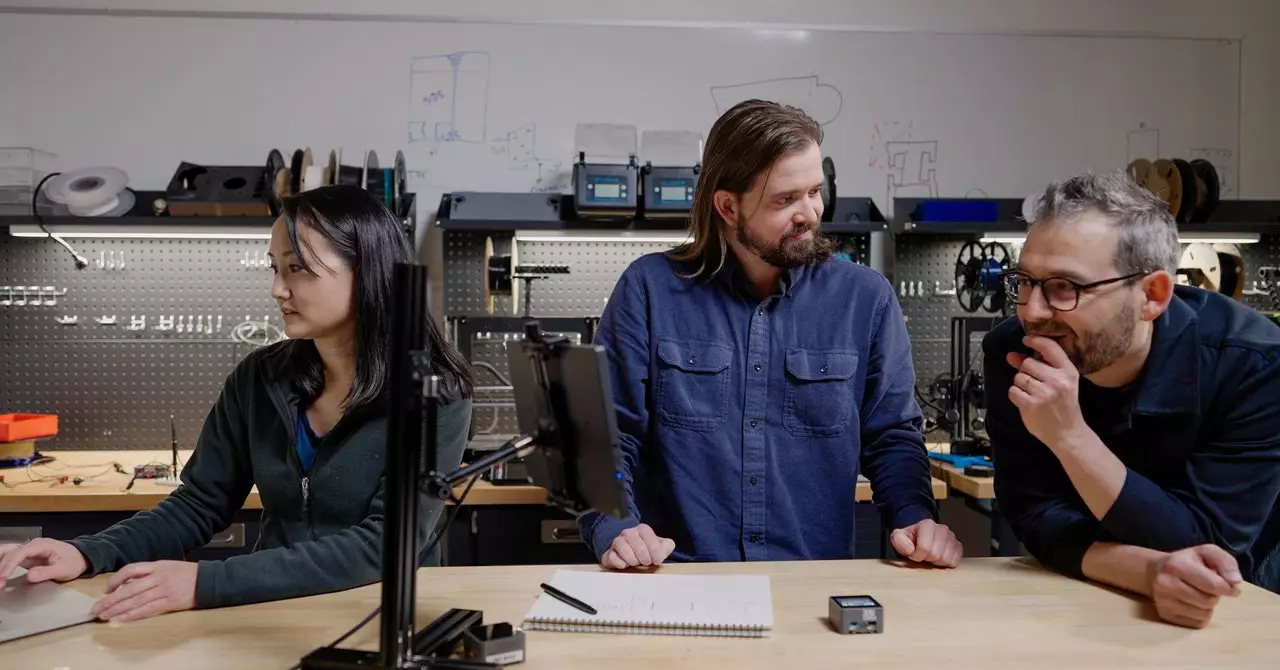The physical world presents a myriad of challenges due to its complexity and rapid nature. According to Brandon Barbello, the COO of Archetype, the problem lies in the vast amount of data produced by sensors that is too difficult to interpret. This is where the potential of artificial intelligence (AI) comes into play, as it can help analyze sensor data and provide a deeper understanding of various problems that we face in the physical world.
Archetype, a tech startup based in Palo Alto, is revolutionizing industries by integrating AI with sensor data. By placing sensors in different devices and environments, Archetype is able to collect vast amounts of data that can be analyzed and interpreted by AI systems like Newton. For instance, by monitoring motion, temperature, and GPS sensors in real-time, the technology can predict outcomes such as potential damage to fragile cargo in transit.
One of the key applications of Archetype’s technology is in streamlining operational processes and decision-making. Instead of relying on complex dashboards or customized software to make sense of sensor data, Newton can provide real-time insights in plain language. This means that industries can have a comprehensive overview of their operations without the need to monitor each sensor individually. For example, a factory can be monitored seamlessly through AI-driven insights, enabling businesses to make informed decisions quickly.
Apart from logistics and manufacturing, Archetype is also exploring opportunities in the healthcare and automotive industries. By working with healthcare professionals like Stefano Bini from UC San Francisco, the technology is being used to monitor recovery progress after surgeries. By analyzing data from multiple sensors, Newton aims to provide single metrics that can measure the impact of healthcare interventions effectively.
In the automotive sector, Archetype is collaborating with companies like Volkswagen to improve safety and efficiency. Through sensor data analysis, vehicles can detect human intentions and respond accordingly, such as automatically opening gates or adjusting internal conditions based on individual needs. The potential for AI to leverage sensor data in the automotive industry goes beyond autonomous driving, offering possibilities for enhanced user experiences and safety features.
Despite the promising applications of AI and sensor data integration, there are concerns regarding privacy and ethical implications. With the ability to collect and analyze massive amounts of data, there is a potential for misuse or invasion of privacy. However, companies like Archetype emphasize the importance of focusing on solving specific problems without compromising privacy. By detecting behaviors rather than identities, the technology aims to maintain privacy while providing valuable insights.
The integration of AI with sensor data presents a significant opportunity to solve complex problems across various industries. By harnessing the power of AI-driven insights, businesses can enhance operational efficiency, improve decision-making processes, and drive innovation. While there are challenges in terms of privacy and ethical considerations, companies like Archetype are committed to leveraging technology responsibly to create a positive impact on society.


Leave a Reply